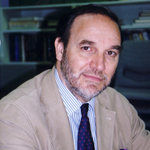Peter Lansberg Articles

NLA 2017 recommendations: Who should benefit from PCSK9 inhibition?
Dr Peter Lansberg, PCSK9 Forum News Editor discusses these latest recommendations from the US National Lipid Association. The National Lipid Association has recently published updated guidance for the use of PCSK9 inhibitors (1). This statement has courted controversy with recommendations for using these efficacious agents…
read more »

Dr Peter Lansberg: What does FOURIER mean for FH patients?
PCSK9 Forum News Editor, Dr Peter Lansberg (Academic Medical Center, Amsterdam, the Netherlands) discusses what the landmark results of FOURIER and SPIRE-2 will mean for the management of patients with familial hypercholesterolaemia (FH, inherited high cholesterol). SPIRE-2 is clearly relevant given that this study also…
read more »
Countdown to FOURIER: Are very low levels of LDL cholesterol safe?
A view from PCSK9 Forum Editor Dr Peter Lansberg (Academic Medical Center, Amsterdam, the Netherlands) Comment relates to: Giugliano RP, Wiviott SD, Blazing MA et al. Long-term Safety and Efficacy of Achieving Very Low Levels of Low-Density Lipoprotein Cholesterol A Prespecified Analysis of the IMPROVE-IT…
read more »
TAUSSIG: What does it mean for the homozygous FH patient?
Data from TAUSSIG (Trial Assessing Long-Term Use of PCSK9 Inhibition in Subjects with Genetic LDL Disorders), the largest and longest study of lipid lowering therapy in patients with homozygous FH, indicate a complementary role for evolocumab with lipoprotein apheresis. PCSK9 Forum Editor Dr Peter Lansberg…
read more »
PCSK9 inhibition reduces the need for lipoprotein apheresis in severe heterozygous familial hypercholesterolaemia patients
ESC Congress, Rome, 29 August 2016 Results from this Monday Hotline of the ODYSSEY ESCAPE study show that treatment with the PCSK9 monoclonal antibody alirocumab reduces the frequency of lipoprotein apheresis in patients with heterozygous familial hypercholesterolaemia (FH, inherited high cholesterol) requiring this therapy. At…
read more »

ODYSSEY ESCAPE: a view from PCSK9 Forum
PCSK9 Forum News Editor, Dr Peter Lansberg (Amsterdam Medical Center, the Netherlands) discusses ODYSSEY ESCAPE and the implications for the management of heterozygous familial hypercholesterlaemia patients with severely elevated LDL cholesterol levels despite maximal LDL lowering therapy.
read more »

News: International Atherosclerosis Society consensus statement on severe familial hypercholesterolaemia
In this new statement, the International Atherosclerosis Society (IAS) has placed phenotype at the heart of management strategies for familial hypercholesterolaemia (FH, inherited high cholesterol). Commenting, lead author Dr. Raul Santos (University of São Paulo Medical School Hospital and Preventive Medicine Centre and Cardiology Program,…
read more »

Low LDL-C, PCSK9 and dementia risk?
An ongoing debate among the experts is whether the very low levels of LDL cholesterol with PCSK9 inhibitor treatment might be associated with neurocognitive events. In fact, the debate predates the PCSK9 inhibitors, with statins linked with cognitive impairment (1-4). However, when the statin data…
read more »

Changing the message on LDL cholesterol: Lifetime exposure is key
84th European Atherosclerosis Society Congress, 29 May – 1 June, Innsbruck, Austria Until recently, the emphasis in clinical care has been to lower LDL cholesterol to the recommended goal, or even below these limits, as investigated with the PCSK9 inhibitors. However, in his Key Note…
read more »
Finding FH: the USA needs to do better
PCSK9 Forum interviewed Professor Gerald Watts, University of Western Australia, Perth, Australia and Dr Peter Lansberg, Academic Medical Center, Amsterdam, The Netherlands about the implications of the USA study estimating FH prevalence, reported in News (1): Familial hypercholesterolaemia affects 1 in 250 people in USA…
read more »
Looking back at AHA Scientific Sessions 2015: What made the news?
PCSK9 Forum roving reporter, Dr Peter Lansberg, Department of Vascular Medicine, Academic Medical Center in Amsterdam, The Netherlands, gave his views on the news in PCSK9 science and therapeutics at AHA Scientific Sessions this year. There was both consolidation of efficacy and safety data for…
read more »
LDL apheresis: Don’t throw the baby out with the bathwater!
Peter Lansberg1,2,3 Wolfgang Ramlow1 1Apheresis Center Rostock (ACR), Germany 2Center for Translational Molecular Medicine – Translational Research IT (CTMM-TraIT), Eindhoven Netherlands 3Department of Vascular Medicine Academic Medical Center Amsterdam, Netherlands Will LDL apheresis become redundant after the introduction of PCSK9 targeted treatments? This new lipid…
read more »

Hot Topic siRNA and PCSK9
Dr Peter Lansberg, Academic Medical Center, Amsterdam, the Netherlands discusses this novel approach to PCSK9 targeting.
read more »

Dutch experience – Improving detection and care
In Europe, the Netherlands has proved that a concerted and integrated effort delivers effective detection of families at risk through cascade screening combined with early treatment – including considering statin therapy – in children the prognosis of people with FH is being significantly improved. Dr…
read more »







